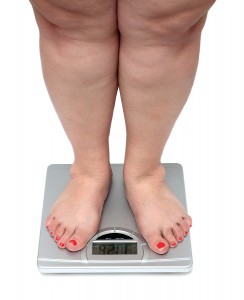In my eBook, The Secret To Ending Overeating For Good, I explain why most overe ating is due to emotional eating. In a recent blog the writer provides 11 signs that one is an emotional eater.
ating is due to emotional eating. In a recent blog the writer provides 11 signs that one is an emotional eater.
Check it out and see if you fit the profile.
“Overeating is emotional by nature. We simply aren’t programmed to eat more than our bodies require for no reason. And we don’t keep doing the same thing over and over unless it’s serving us in some way.
“Emotional eaters eat to soothe negative feelings like stress, boredom, loneliness, anger, anxiety, and/or sadness. Researchers estimate that 75% of “emotional eating” leads to overeating. How do you know if you are an emotional eater? Most people just *know* – but if you aren’t sure, here are 11 surefire signs.
“#1 – You eat without realizing you are even putting food into your mouth. This can happen almost unconsciously, especially after you have committed to swearing off a particular food.
“#2 – You feel stressed about an important project or emotionally-charged issue, but instead of dealing with it directly, you dive into a package of cookies.
“#3 – You feel guilty or ashamed after overeating and blowing your plan *again*.
“#4 – When you do something good, you feel like you *deserve* a treat. You eat to celebrate . . . anything.
“#5 – You don’t stick to a plan, and feel like your eating or your weight is spiraling “out of control.”
“#6 – You eat to procrastinate. You don’t want to do something that seems difficult or time consuming, so you eat before attempting it (if you get to it at all).
“#7 – Feeling full isn’t enough. You need to feel stuffed to feel satisfied.
“#8 – You tend to overeat when you are fatigued. It’s quick and easy, and feels like the only thing you have the energy to do.
“#9 – You tend to overeat when you are alone, bored and lonely to entertain yourself. It can even feel exciting at first, because you get to do exactly what you want with nobody watching.
“#10 – You crave certain foods and feel like you *have to* have them. While there are many factors that create food cravings, emotions are at the top of the list.
“#11 – You feel like you can’t get what you REALLY want, so you *settle* for food.”
For the full article, please go to: http://www.docstoc.com/docs/69566492/11-Signs-Of-Emotional-Eating.
If you fit the description of an emotional eater, remember that you can totally and permanently stop this problem when you eliminate the beliefs and conditionings that cause it.
For more details, please see my eBook, The Secret to Ending Overeating For Good, at http://emotionaleatingreport.com. You also can get answers to specific questions at my office, 415-884-0552.
Copyright © 2011 Morty Lefkoe





